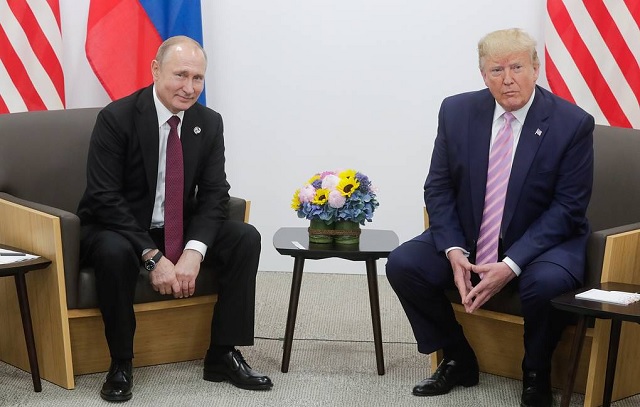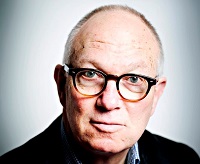
COMMENT | IAN BURUMA | Compared to other Western democracies, the United States is still a profoundly religious country. Around 24% of Americans identify as evangelical Christians. Five US Supreme Court justices are conservative Catholics (the only other conservative on the bench, Neil Gorsuch, was raised and educated as a Catholic but is now an Episcopalian). And American presidents portray themselves as religious, regardless of their true beliefs.
A quasi-religious aura even hovers over the US constitution, which many Americans – including secular liberals – have long treated as a kind of sacred text, written by the country’s founders. After visiting in the early 1830s, French aristocrat Alexis de Tocqueville came to see Christian morality as an essential ingredient in US democracy: it created a kind of “civic religion” to balance the crude materialism of American life. Belief in a political system that guaranteed individual freedom based on the rule of law served as the connective tissue for a country of immigrants.
To be sure, America’s civic religion has always been contested and deeply flawed. It formally excluded Black Americans until the 1960s. White supremacy was, and remains, a major force in US politics – the defeat of the southern states in the Civil War didn’t change that. Religious zealots never accepted the separation of church and state. And the rule of law exists only in theory for the many poor people who can’t afford a good lawyer.
Nonetheless, American democracy has long persisted as a secular faith that borrowed heavily from Christianity. Consider, for example, the belief that American values are universal, and thus should be spread to the rest of the world. The only other Western democracy with similar claims to universality (and that subsequently engaged in the “civilizing mission” of promoting its principles abroad) is France. This could have something to do with the fact that both French and US democracies stemmed from revolutions, which were in turn based on Enlightenment ideals.
Whatever else may result from Donald Trump’s second presidency, it will certainly test, and perhaps destroy, people’s faith in American democracy and its universalist claims. While some call Trump a fascist, this implies an ideological coherence that just isn’t there. Few, if any, in the president’s entourage of fanatics, conspiracy-mongers, and opportunists believe in the corporate state that Mussolini and other fascist dictators espoused. On the contrary, they wish to dismantle much of the state.
Trump is far from the first American politician to exploit paranoid fears and vengeful rage against liberal elites, immigrants from poor countries, and Black people. What is unusual is his open contempt for US democratic institutions: a free press, an independent judiciary, free and fair elections, and the rule of law. In his first week back in office, Trump fired public officials, froze federal spending without any authorization from Congress, and threatened to end birthright citizenship. It was, as the constitutional scholar and Harvard Law School professor emeritus Laurence Tribe put it, “a blitzkrieg on the law and the constitution.”
In other words, Trump is deliberately destroying trust in the system of government that has held together a vast and disparate country. By tearing down that civic religion, flawed as it may be, he is laying the groundwork for another quasi-religious belief: unquestioning fealty to an autocratic ruler, or what the Germans once called the Führerprinzip. Some of Trump’s followers believe that he was chosen to rule by God. This kind of idolatry, more common in the world’s worst dictatorships, has never infiltrated the White House before.
When implementing the New Deal in the 1930s, Franklin D. Roosevelt stretched presidential powers to their limit, enraging his political opponents. The influential newspaper columnist Walter Lippmann, speaking for Roosevelt’s many admirers, argued that a “mild species of dictatorship will help us over the roughest spots in the road ahead.” But Roosevelt was not lawless. He did not unleash a war against the constitution or encourage an insurrection. Nor did he turn the Democratic Party into a quasi-religious cult.
That is precisely what Trump has done to the Republican Party, through threats, coercion, and the lure of unconstrained power. How this will affect the future of the US, and the many countries that depend on American leadership, is hard to predict.
Although some cults outlive their founders, Trumpism may not endure. Trump’s angry narcissism lacks the ideological basis for a lasting political legacy. Many of his supporters, disappointed by promises that fail to materialize, or disgusted by the chaos unleashed by erratic policies and incompetent officials, might turn against him. A plunging stock market, a revived Democratic Party, and principled courts could curb some of Trump’s darkest impulses.
But even if the Trump cult does not last, it may damage the foundations of US democracy beyond repair. In that case, the legacy of his administration – with its disastrous consequences for governance, foreign alliances, and global security – would long outlive the peculiar outrages of a man who should never have been president in the first place.
****
 Ian Buruma is the author, most recently, of Spinoza: Freedom’s Messiah (Yale University Press, 2024).
Ian Buruma is the author, most recently, of Spinoza: Freedom’s Messiah (Yale University Press, 2024).
Copyright: Project Syndicate, 2025
www.project-syndicate.org
 The Independent Uganda: You get the Truth we Pay the Price
The Independent Uganda: You get the Truth we Pay the Price



